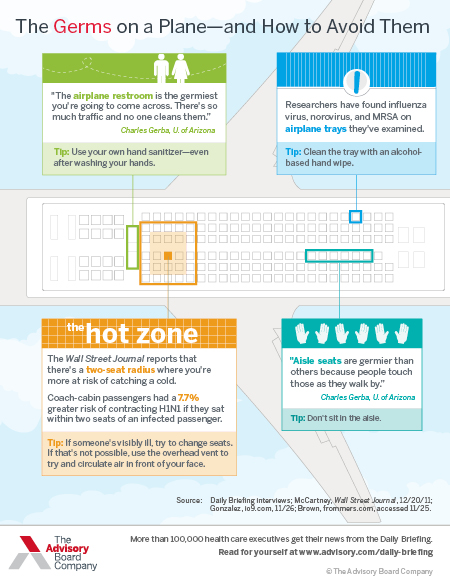Auto logout in seconds.
Continue LogoutEditor's note: This popular story from the Daily Briefing's archives was republished on Oct. 23, 2019.
Americans spend almost $8 billion per year on over-the-counter cough and cold medicines, but despite their popularity, there is little-to-no evidence that these products can cure or shorten the duration of a cough, Jane Brody reports for the New York Times' "Well."
Cheat sheet series: Evidence-Based Medicine 101
A lack of evidence in favor of cold medicine
About 30 million people visit a doctor due to cough symptoms every year. And when parents of coughing kids come to pediatrician Perri Klass, they're in for some bad news: "There's nothing that works, I say, and medicines can have bad side effects," Klass writes in a November 2018 "Well" piece.
That isn't just Klass' own conclusion. A research review published in BMJ last year on the effectiveness of over-the-counter cough and cold medicines found "very little evidence" that the medications work, especially in children.
"[W]e were actually quite amazed by how little [evidence] there was," Mieke van Driel, head of the primary care clinical unit at the University of Queensland in Australia and first author of the study, said.
The researchers also analyzed studies that investigated whether the ingredients in over-the-counter cough and cold medicines cause more harm than good in some patients and found that there are risks in giving the products to young children, especially if the medicines are taken in larger doses.
Why do people think they work?
Although there's practically no evidence that over-the-counter cough medications work, the placebo effect keeps them flying off the shelves, Brody reports. Since patients expect the medication to get rid of or suppress their cough symptoms, they sometimes do, "at least temporarily," Brody writes.
But van Driel said that if more doctors were transparent about the efficacy—or lack thereof—of over-the-counter cough products, they could prevent millions of Americans from spending money on ineffective treatments. "If you give people information and tell them what to expect, they generally accept that they don't need medication," van Dreil said
What about home remedies?
In fact, while there are very few studies that support the efficacy of over-the-counter cough medicines, there is some research that suggests alternative treatments, such as warm soup and hot tea, might be the most effective for treating an irritating cough.
Shonna Yin, an associate professor of pediatrics and population health at NYU School of Medicine, said that coughs and other symptoms associated with the common cold "are self-limited," adding that staying hydrated and drinking tea with honey can relieve the symptoms.
For instance, a 2007 study revealed that honey is more effective at reducing coughs than the common cough suppressant dextromethorphan, according to Ian Paul, a professor of pediatrics at Penn State College of Medicine and a lead author of the 2007 study. Since its publication, more research has supported the study's results, according to Paul.
And a recent randomized controlled trial with 163 patients revealed that a cough medicine made out of chocolate was more effective at soothing mucous membranes than standard, over-the-counter cough medication, Brody reports.
When to see a doctor
While in most cases coughs are more irksome than life threatening, Norman Edelman, a pulmonologist at Stony Brook University School of Medicine and scientific adviser at the American Lung Association, said there are instances in which a doctor visit is warranted. For instance, he said people with underlying medical conditions, such as asthma or COPD (chronic obstructive pulmonary disease), should have a plan in place with their doctor to address lingering coughs.
"People with a significant underlying health problem should not wait four weeks to see a doctor," Edelman said, adding, "[I]f every winter you get cold after cold followed by a cough, you should see a doctor right away because it could represent an underlying problem" (Brody, "Well," New York Times, 2/18; Klass, "Well," New York Times, 11/5/18).
Evidence-Based Medicine 101
Been awhile since your last statistics class? It can be difficult to judge the quality of studies, the significance of data, or the importance of new findings when you don't know the basics.
Download our cheat sheets to get a quick, one-page refresher on some of the foundational components of evidence-based medicine.
Don't miss out on the latest Advisory Board insights
Create your free account to access 1 resource, including the latest research and webinars.
Want access without creating an account?
You have 1 free members-only resource remaining this month.
1 free members-only resources remaining
1 free members-only resources remaining
You've reached your limit of free insights
Become a member to access all of Advisory Board's resources, events, and experts
Never miss out on the latest innovative health care content tailored to you.
Benefits include:
You've reached your limit of free insights
Become a member to access all of Advisory Board's resources, events, and experts
Never miss out on the latest innovative health care content tailored to you.
Benefits include:
This content is available through your Curated Research partnership with Advisory Board. Click on ‘view this resource’ to read the full piece
Email ask@advisory.com to learn more
Click on ‘Become a Member’ to learn about the benefits of a Full-Access partnership with Advisory Board
Never miss out on the latest innovative health care content tailored to you.
Benefits Include:
This is for members only. Learn more.
Click on ‘Become a Member’ to learn about the benefits of a Full-Access partnership with Advisory Board
Never miss out on the latest innovative health care content tailored to you.

